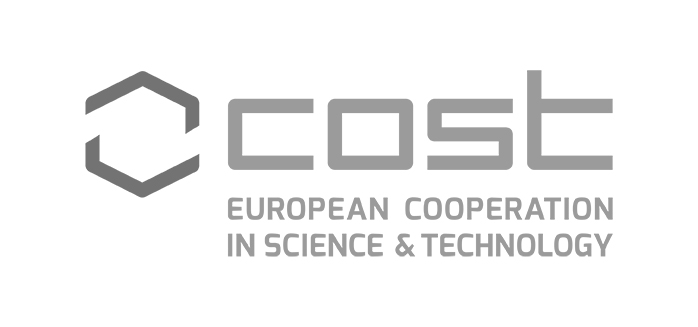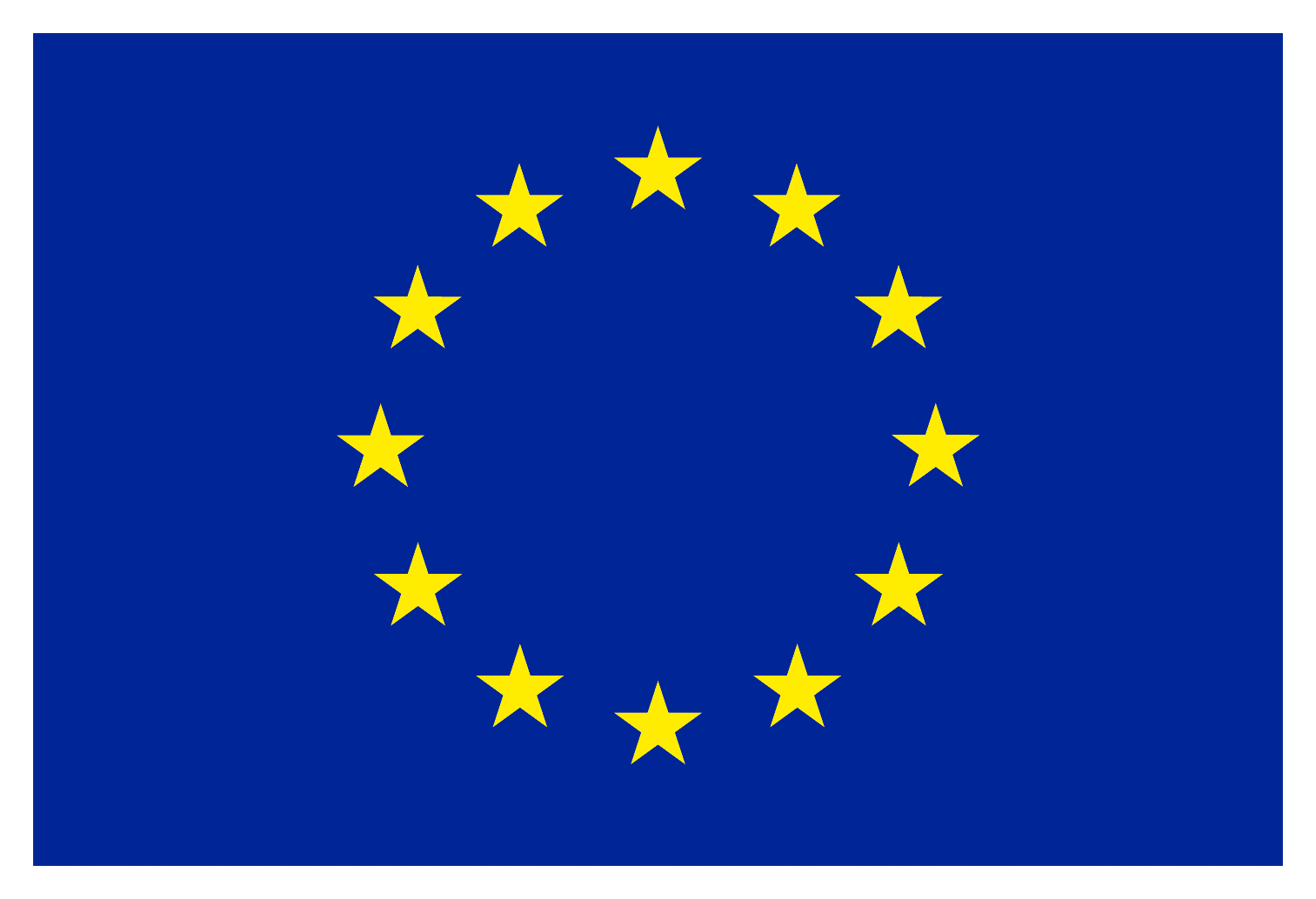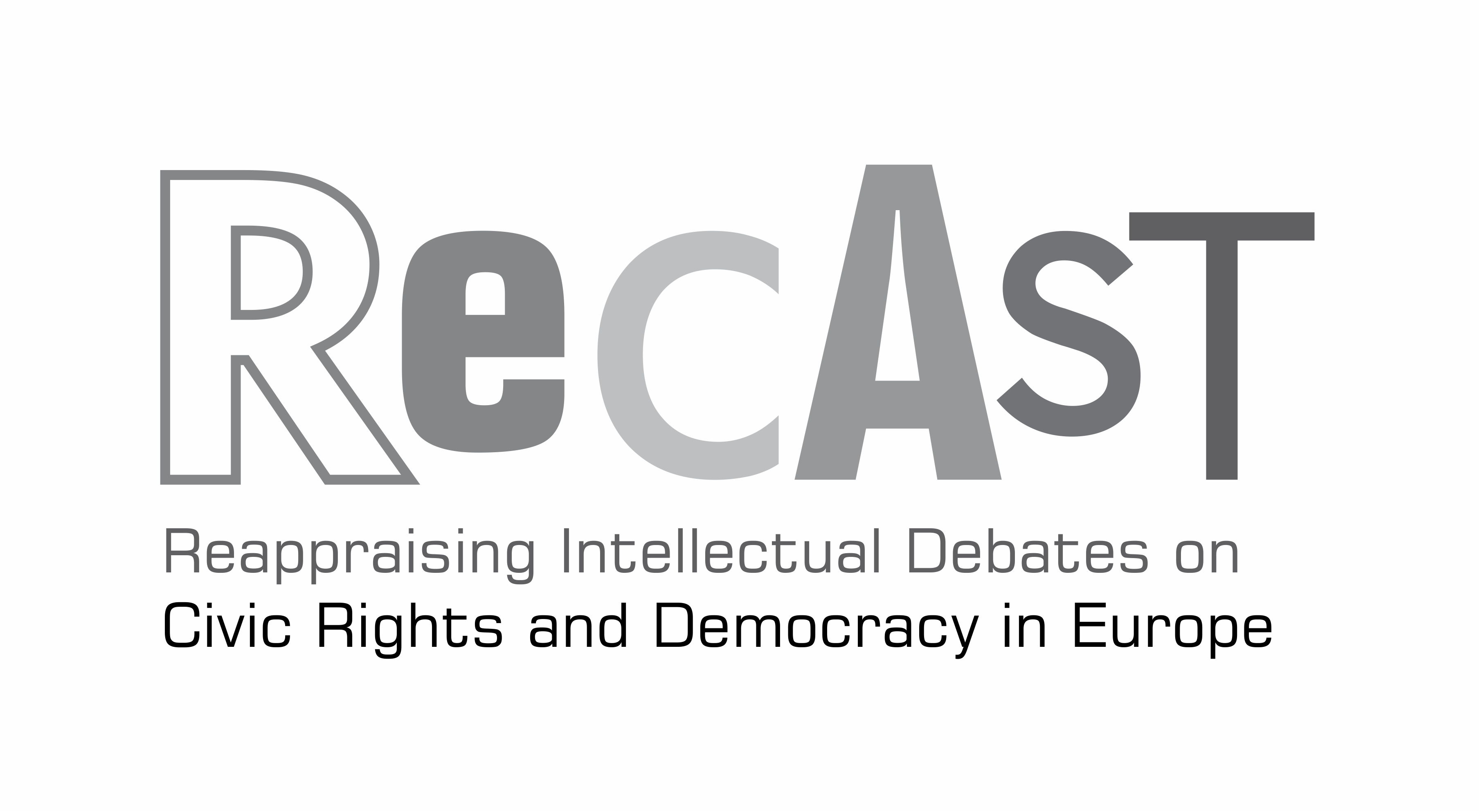WG 2 Workshop 2
COST Action CA 16211 RECAST
Reappraising Intellectual Debates on Civic Rights and Democracy in Europe
Languages and Ideologies 2
Co-organised with the Department of Politics & International Relations of the University of West Bohemia and CONCEPTA: Research Seminars in Conceptual History and Political Thought, this second workshop of Working Group 2: Languages and Ideologies, of COST Action RECAST, is scheduled for 14-15 February 2019 in Pilsen.
Convened by Rosario López (University of Málaga) and Lenka Strnadová (University of West Bohemia), it deals with Critiques of Liberalism and Challenges to Democracy: Understanding the Conservative Standpoint.
Report
The second workshop of the Working Group 2: Languages and Ideologies was titled Critiques of Liberalism and Challenges to Democracy: Understanding the Conservative Standpoint.
This two-day workshop was held in Pilsen, 14 –15 February 2019, at the Department of Politics & International Relations of the University of West Bohemia. Co-organised in cooperation with CONCEPTA: Research Seminars in Conceptual History and Political Thought, it was convened by Rosario López (University of Málaga) and Lenka Strnadová (University of West Bohemia).
Following up from our first workshop on liberalism, the idea of this second workshop was to focus on the critiques of liberalism through what has been thought as its counterpart, conservatism. Therefore, it examined conservatism as an ideology and identifiable discourse, whether from a historical perspective or the plurality of contemporary critiques of liberalism, as constituting a challenge for the basis of certain values of European political and societal order related primarily to liberal egalitarian conceptions of the individual, social justice, pluralism, equality, respect and/or tolerance, and democratic inclusion.
There were 21 presentations in total, organised in 7 panels. The workshop gathered scholars and experts from Czech Republic, Denmark, Finland, Germany, Israel, Portugal, Romania, Slovakia, Sweden, United Kingdom.
On 14 February, four sessions were scheduled. At the first session on Conservatism: Concepts and Definitions, Tamás Nyirkos (Pázmány Péter Catholic University), presented the paper “Three Conservative Paradoxes”, Paul Gunn (Goldsmiths, University of London), “The Conservative Fear of Unintended Consequences”, and Alon Shalev (Hebrew University of Jerusalem), “Conservatism as Political Perception”. These three papers highlighted the methodological and theoretical problems that arise when examining conservatism as a coherent ideology and suggested ways of tackling diversity.
The second session was devoted to Conservatism and Radicalism through three case studies, with papers by Tobias Adler-Bartels (University of Göttingen), “Radical Conservatism as a Challenge for German Liberal Democracy: The Metapolitical Attack on Liberal Conservatism in the 1970s and 80s”, Sandra Štollová (University of West Bohemia), “The Grand Shift of German Conservatism: From Conservative to Völkisch Standpoint”, and Ladislav Cabada (Metropolitan University Prague) “Nativism in Contemporary Populist Conservativism: The Case Study of Slovenia”.
After lunch, three presentations explored Conservatism’s Encounters and Interactions with racism, liberalism, and neoliberalism. Nathan Alexander (University of Erfurt) presented the paper “‘I’m the Least Racist Person Anybody is Going to Meet’: Conservative Responses to the Charges of ‘Racism’ and ‘Prejudice’ in American History.” Benjamin Thomas (University of Nottingham) contributed with a paper on “Conservatism in the Age of Neo-liberalisation”. Eno Trimçev (University of Greifswald) delivered the paper “Some Newish Thoughts on the Old Quarrel between Conservatism and Liberalism”.
The day closed with a session on the relationship between Conservatism and Nation-building, and presentations by Martin Beckstein (University of Zurich), “Integrative Collective Identity as Noble Lie? Fukuyama’s Proposal to Moderate the New Culture Wars”, Tuukka Brunila (University of Helsinki), “The Return of Democratic Legitimacy: Carl Schmitt and the Crisis of Liberal Democracy”, and Pedro Miguel Martins (CEPS, University of Minho), “Local Warming: The Case for Environmental Conservatism of Roger Scruton”.
On 15 February the first section addressed the challenge that liberalism poses to conservatism. To this aim, three papers were presented: Victor Rizescu (University of Bucharest), “Right-wing Liberalism and the Modernist Right: Two Intermingling Romanian Venues of the Modernizer Drive in a Comparative Perspective”, Benjamin Schvarcz (The Hebrew University of Jerusalem, Kohelet Policy Forum, and Eastern R&D Center), “Conservatism versus Liberalism in Israeli Constitutional Debates”, and Konstantinos Bizas (University of Jyväskyä), “J. G. A. Pocock’s Early Interests in the Conservative Scholarship”.
In the following session, papers presented by Christian Egander Skov (NTNU, Trondheim), “From Processual to Substantial Democracy”, Torbjörn Nilsson (Södertörn University, Stockholm), “Conservatives at the Crossroads: Co-operating or Resisting Extremism and Populism?” and Nuno Morgado (Charles University, Prague), “Conservatism versus Far-right: Examining the Ideology of Brazilian President Jair Bolsonaro”, emphasised how democratic values collide with far-right ideologies.
The seventh session examined conservatism through the prism of discourse practices. Přemysl Rosůlek (University of West Bohemia) gave the paper “‘In the Name of Christianity!’: Islamophobia & Reasoning of the Czech and Slovak Political Elites during Current ‘Migration Crisis’”, Ondřej Stulík (University of West Bohemia), on “Democratic Norms Preservation: A Problem with Populism in the Recall Case”, and Pavol Hardoš (Comenius University in Bratislava), on “The Grammar of Anti-gender Reaction in Slovak Conservatism”.
The workshop closed with a business meeting, recapitulating first some of the discussions held during the sessions – all papers were followed by thought-provoking questions and fruitful debates and conversations; and then outlining some prospects for future cooperation in the framework of Working Group 2: Languages and Ideologies.
(Please note this report complements the programme.)
Rosario López, University of Málaga
Lenka Strnadová, University of West Bohemia
 |  |  |  |



